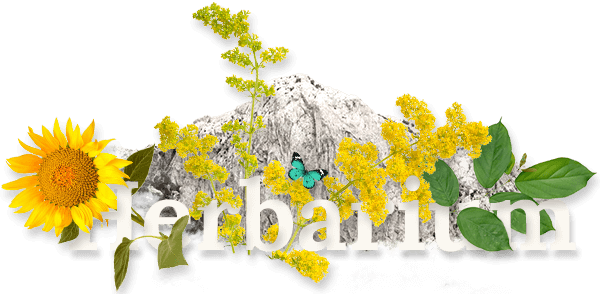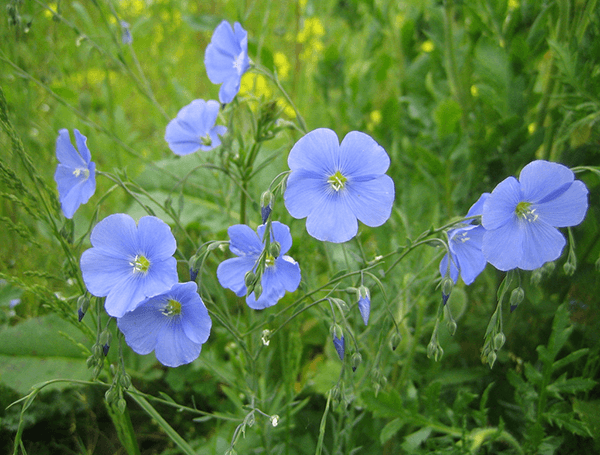Izradu internetske stranice sufinancirala je Europska unija u okviru operativnog programa Konkurentnost i kohezija iz Europskog fonda za regionalni razvoj.
saznajte više

FLAX
lat. Linum usitatissimum
Other names: Linseed, chih-ma, common flax, flax, flax weed, lint bells, toad flax, uma, winterlien.
Scroll
Habitat:
Flax is thought to have originated in Egypt and was found from the Mediterranean to India. However, it is one of the oldest cultivated plants known and has been found during the excavation of ancient Egyptian tombs. Today, it is cultivated around most of the world since it is not only valued for its nutritional and medicinal uses, but it is also used in the making of cloth, paper, and other useful products.Flax prefers deep, moist soils that are rich in sand, silt, and clay.
Description:
The plant is a small herbaceous annual with a single stem that reaches a maximum of 4 feet in height. The stalk has alternating rows of linear, inch-long leaves. Flax blossoms have five petals and are usually blue, but can also be bright red. After the flowers have died, flax bears a fruit that is a round dry capsule less than a centimeter in diameter. Each capsule contains several seeds that resemble small apple seeds.
Plant Parts Used:
The seeds are used whole or crushed. Flaxseed oil is extracted by pressing the seeds. Only cold-pressed oil is used as food and herbal medicine.
Pharmaceutical use:
The seeds, which are high in fiber and mucilage, absorb large amounts of fluid and draw out toxins when ingested and act as a gentle bulking laxative. Flaxseed is, therefore, both an effective herbal treatment for diarrhea and constipation. In addition, the herb may maintain a healthy digestive tract and even be effective in the prevention of chronic diseases such as diverticulosis and ulcerative colitis. Flaxseed oil is well-known for its high content of essential fatty acids. These fatty acids are only accessible if the seeds are split prior to ingestion. Essential fatty acids such as linolenic acid and linoleic acid have numerous health benefits including the prevention of heart disease and healthy fetal development. Flaxseed may be a natural remedy for high blood pressure and may also lower levels of a protein called homocysteine in the blood. This protein is measured as a major risk factor for the onset of heart disease. These small seeds are also a rich source of fiber known as lignin. Friendly bacteria that are naturally occurring in the digestive tract convert lignans into compounds that may fight cancer by reducing tumor size.
Cautions:
Please be aware that herbs, although natural can interact with certain medications, and that they may be ill advised to use under certain health conditions. Please consult a qualified health practitioner for cautions pertinent to you.
No therapeutic claim is made or intended for AZENA products. Information is for educational purposes only.




